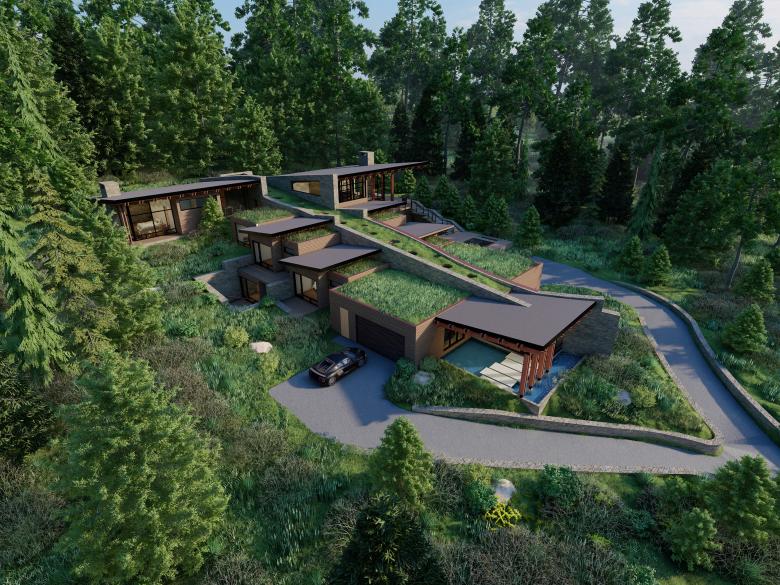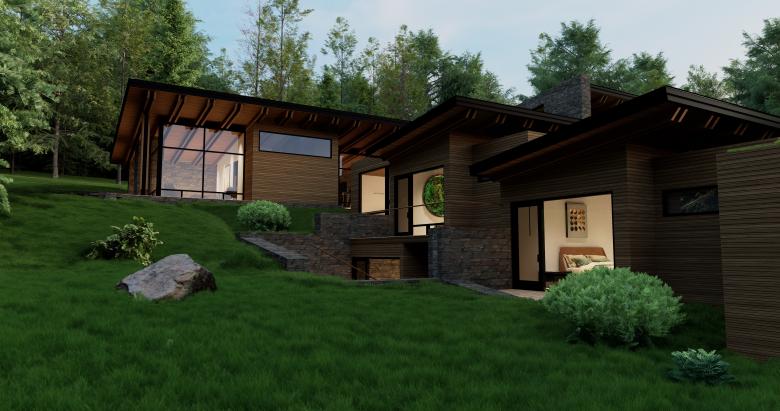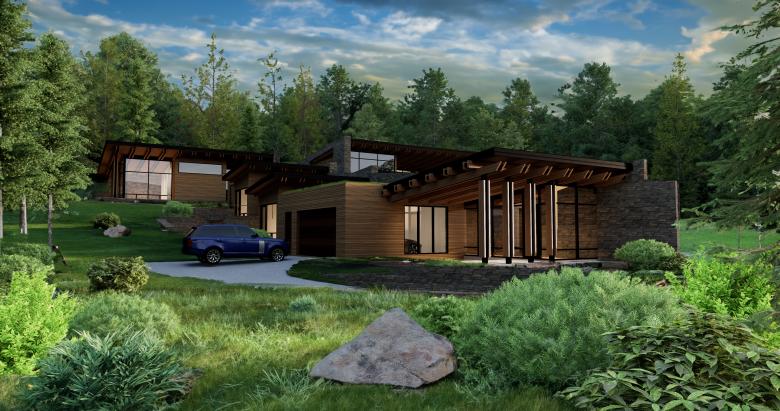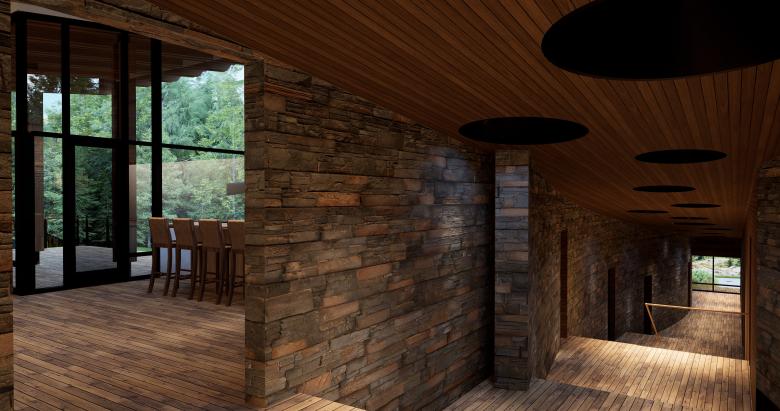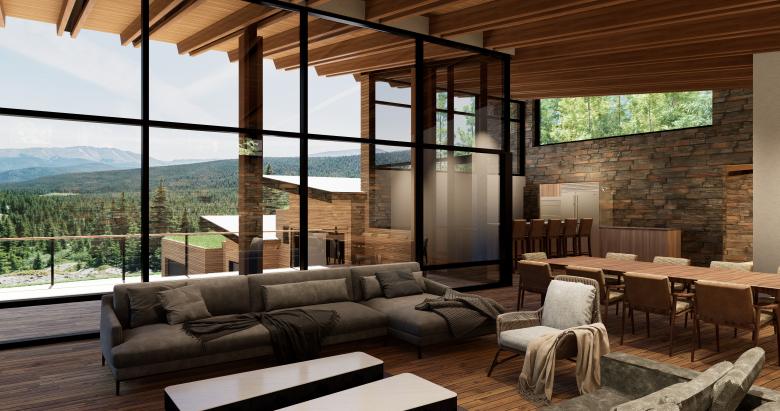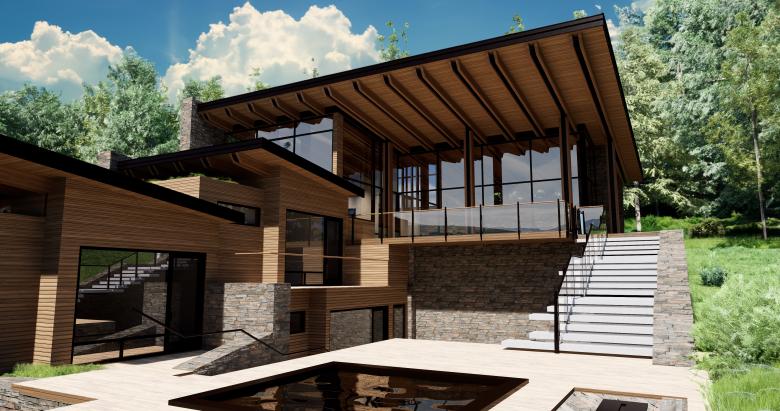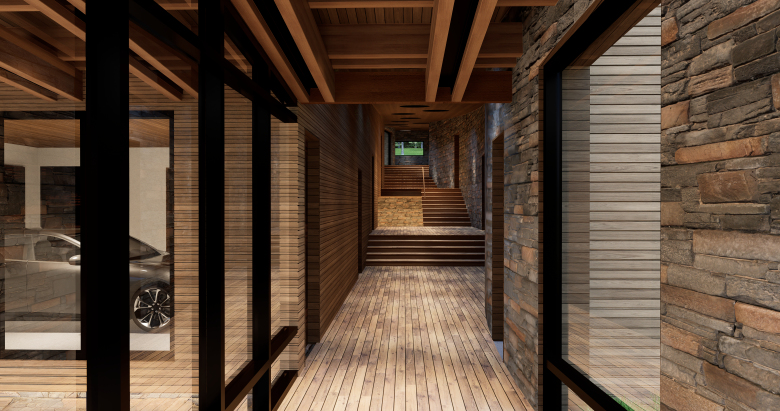Spanish Peaks Residence
Big Sky, Montana, USA
- Architects
- Ward + Blake Architects
- Location
- Big Sky, Montana, USA
- Year
- 2017
The entrance level begins at the lower portion of the site, guiding your gaze upwards, gradually unveiling the final highest space, the master suite, nestled amidst the upper topography. These two bookend spaces, along with the intermediate spaces, are organized by a central circulation spine defined by two walls running perpendicular to the slope. A series of stairs and landings, each precisely positioned to align with the natural topography, places each space at grade, establishing an intimate connection at every level.
Each living space expresses itself as a small structure attached to the circulation spine. Two slightly undulating masonry walls form the spine, evoking the sensation of strolling along a forest path. Circular skylights offer glimpses of the Montana sky, reminiscent of the Lodgepole Pine canopy above. The trees act as a vertical datum, dictating the scale of each component of the residence. By respecting their height, the decentralized plan projects a sense of modesty that pays respect to the surrounding site.
The design of the shed roofs draw from the region’s rich history of 19th-century Scottish immigrant sheep ranches that dotted the mountain valleys. These roofs are calibrated to capture panoramic views and simultaneously manage solar exposure, balancing the need for nature and comfort.
Altogether, these architectural strategies serve to decentralize the mass of the plan and create a foil to the over-scaled Lodge archetype typical of the area.
Re-sawn Cedar, locally sourced flagstone and rubble, Cor-ten steel, and Douglas Fir beams come together to pay homage to the past in unsentimental ways, weathering gracefully with the passage of time. These thoughtfully chosen materials require no annual maintenance, ensuring an undisturbed patina gradually forms.
A super insulated building envelope, sod roofs, triple glazed windows, and ground source heat pump HVAC system produce a sustainable machine for both heating and cooling. These components of the design along with the use of locally sourced materials and reclaimed lumber for the superstructure further reduces the carbon footprint of the design.
Related Projects
Magazine
-
Winners of the 5th Simon Architecture Prize
1 week ago
-
2024, The Year in …
1 week ago
-
Raising the (White) Bar
1 week ago
-
Architects Building Laws
2 weeks ago
